Students
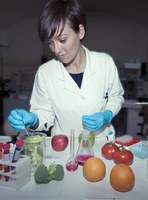 Eleonora Croco, PhD student in Pharmacological and toxicological Sciences, Department for Life Quality Studies, University of Bologna. Email: eleonora.croco2@unibo.it
Eleonora Croco, PhD student in Pharmacological and toxicological Sciences, Department for Life Quality Studies, University of Bologna. Email: eleonora.croco2@unibo.it
She gradueted in Biology at Bologna University, with a master degree thesis entitled “Prognostic identification of biomarker in Giant Cell cancer by proteomics analysis”. She got a “Marco Polo” scholarship that allow her to work for 8 months in Dr Sell’s lab at Drexel University (Philadelphia) with the project “Study of genomic stability between mammals with different lifespan”. There, Eleonora deepened her knowledge and her interest in ageing field. Now she is working as a PhD student in Dr. Lorenzini’s Lab. Her main research is focused on DNA damage signaling and how DNA system repair interact with cell cycle arrest or progression. In her research, applying a comparative approach (a cell bank of mammals with different longevity), she uses DNA damage concepts as a possible model to explain ageing in different mammalian species.
 Sebastian Klepsch obtained his Bachelor’s degree in Biology and Management and Economics at the University of Innsbruck. Afterwards he studied Microbiology and Molecular Cell and Developmental Biology at the University of Innsbruck.
Sebastian Klepsch obtained his Bachelor’s degree in Biology and Management and Economics at the University of Innsbruck. Afterwards he studied Microbiology and Molecular Cell and Developmental Biology at the University of Innsbruck.
During his graduate studies he went to Canada where he joined the Stem Cell and Cancer Research Institute at McMaster University for 6 months, working in the lab of Prof. Mick Bhatia, investigating the role of HOX genes in Embryonic Stem Cells. He then started his PhD in 2011 at the medical University of Innsbruck, joining the Stem Cell Aging research group of Günter Lepperdinger at the Institute of biomedical aging research, focusing on physiological stress response mechanisms and their impact on human mesenchymal stem cell fate decision. Additionally he is an elected representative of the PhD students at the Medical University Innsbruck, Representative of the PhD program "The Aging of Biological Communication Systems" and member of the senate at the Medical University Innsbruck.
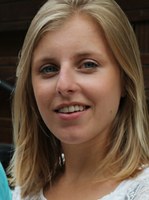 My name is Stephanie Stelten (23 years old). I obtained a master’s degree in Health Sciences (specialisation: Nutrition and Health) at the VU University Amsterdam. Currently, I am working as a dietitian and researcher (on protein intake in hospitalized older adults) at the VU University medical center. I want to learn about the biological processes of ageing, so I can use this knowledge in my future carrier as a researcher on food intake and nutritional status of older adults.
My name is Stephanie Stelten (23 years old). I obtained a master’s degree in Health Sciences (specialisation: Nutrition and Health) at the VU University Amsterdam. Currently, I am working as a dietitian and researcher (on protein intake in hospitalized older adults) at the VU University medical center. I want to learn about the biological processes of ageing, so I can use this knowledge in my future carrier as a researcher on food intake and nutritional status of older adults.
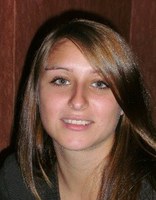 My name is Carina Miggitsch. I started my bachelor studies of biology at the Leopold-Franzens-University in Innsbruck. Currently I am enrolled in the fourth semester of my master studies of the molecular cell- and developmental biology programme. I conducted my bachelor thesis at the institute of molecular biology in the research group of Prof. Dirk Meyer, working on gene editing by zinc finger nucleases via "modular assembly". As part of the graduate program I got the opportunity to carry out a lab rotation at the Institute for Biomedical Aging Research, where I assisted the Lepperdinger Group, which has a research focus on stem cell biology in the context of aging. Furthermore, I was able to start working on my master thesis entitled ‘Stress granule formation – a molecular mechanism of osteogenic differentiation’ which is a follow up based on the data obtained during lab rotation.
My name is Carina Miggitsch. I started my bachelor studies of biology at the Leopold-Franzens-University in Innsbruck. Currently I am enrolled in the fourth semester of my master studies of the molecular cell- and developmental biology programme. I conducted my bachelor thesis at the institute of molecular biology in the research group of Prof. Dirk Meyer, working on gene editing by zinc finger nucleases via "modular assembly". As part of the graduate program I got the opportunity to carry out a lab rotation at the Institute for Biomedical Aging Research, where I assisted the Lepperdinger Group, which has a research focus on stem cell biology in the context of aging. Furthermore, I was able to start working on my master thesis entitled ‘Stress granule formation – a molecular mechanism of osteogenic differentiation’ which is a follow up based on the data obtained during lab rotation.
 My name is Iris Mikulic and I am a 21-year old student at the VU University in Amsterdam. After completing my secondary school in Dublin, Ireland, I decided to start a bachelor degree in liberal arts and sciences in Utrecht, the Netherlands. At this university I did some courses in psychology and biology which I found interesting, nonetheless, after two years I decided to stop as I realised I wanted to become a doctor. Now I am studying medicine at the VU and I am loving it! I applied for this programme as I find geriatrics an interesting topic and I hope that during this course I will improve my understanding and knowledge of the biology of ageing. Furthermore, I would love to improve my leadership qualities as I believe this is an important aspect in setting the foundations for a prosperous career. Likewise, I applied for this programme in order to meet people from different countries and be able to share thoughts and ideas about this interesting topic . That is about all but If you have any further questions, please do not hesitate to ask me!
My name is Iris Mikulic and I am a 21-year old student at the VU University in Amsterdam. After completing my secondary school in Dublin, Ireland, I decided to start a bachelor degree in liberal arts and sciences in Utrecht, the Netherlands. At this university I did some courses in psychology and biology which I found interesting, nonetheless, after two years I decided to stop as I realised I wanted to become a doctor. Now I am studying medicine at the VU and I am loving it! I applied for this programme as I find geriatrics an interesting topic and I hope that during this course I will improve my understanding and knowledge of the biology of ageing. Furthermore, I would love to improve my leadership qualities as I believe this is an important aspect in setting the foundations for a prosperous career. Likewise, I applied for this programme in order to meet people from different countries and be able to share thoughts and ideas about this interesting topic . That is about all but If you have any further questions, please do not hesitate to ask me!
 Tiang Yee Peng, PhD student in Cell and Molecular Biology, Department of Pharmacology and Biotechnology, University of Bologna. Email: yeepeng.tiang2@unibo.it
Tiang Yee Peng, PhD student in Cell and Molecular Biology, Department of Pharmacology and Biotechnology, University of Bologna. Email: yeepeng.tiang2@unibo.it
She graduated from the University of Malaya (Malaysia) with a Master of Medical Science. Her thesis investigated the correlation of human papillomavirus infection and the expression of MCM-2 protein in women with cervica neoplasia employing molecular techniques such as the quantitative PCR and immunofluorescence. After graduated, she was an assistant lecturer in a private university in Malaysia, teaching subjects like Biochemistry, Cell Biology and Molecular Cloning. It was after 3 years that she decided to pursue her PhD upon receiving a fellowship from the Italian Ministry of Foreign Affairs. Her current PhD project focuses on the role of Topoisomerase 1(Topo1) in transcription and replication regulations. Recent reports on non-canonical secondary DNA structures, G-quadruplex (G4), and its regulatory role in transcription and replication, have created much excitement that both Topo1 and G4 may execute their functions cooperatively. It is also to her interest that since G4 motifs is mostly found in the G-rich regions (such as the telomeres), its function is believed more than what have been reported particularly in DNA repair mechanism.
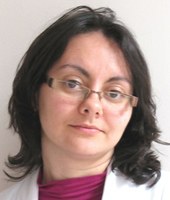 Ioana Streaţă, University of Medicine and Pharmacy Craiova, Romania
Ioana Streaţă, University of Medicine and Pharmacy Craiova, Romania
At present, I am a second year junior physician in Medical Genetics at the Emergency County Hospital Craiova, Romania. Also, I am a second year PhD student in field of Molecular and Cellular Biology at the University of Medicine and Pharmacy of Craiova, Romania. The main theme of my PhD research project is “Molecular mechanisms involved in Neurological and Developmental Disorders”. Neuroscience is a field that interested me since I was a student. As student I have attended several workshops and conferences in this area. I worked with the team of Neurophysiology from my university.
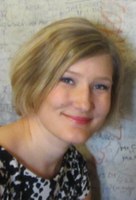 Mariëtte Waaijer (LUMC), email: m.e.c.waaijer@lumc.nl
Mariëtte Waaijer (LUMC), email: m.e.c.waaijer@lumc.nl
I studied Medicine at the Leiden University Medical Centre and obtained my medical degree in 2014. During my studies I participated in an elective course on the ageing process at which time my interest in gerontology sparked. Next to my medical training I did research at the department of Gerontology and Geriatrics, studying the association between senescent cells in human skin and morphological and clinical aging phenotypes. At the moment I work as a PhD candidate at the same department. During this course I hope to expand my knowledge on the extensive aspects of the biology of aging and I look forward to discuss ideas with fellow students and researchers of the programme.
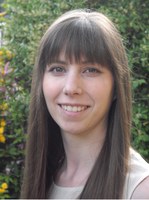 Theresa Pritz, Phd student at the Institute of Biomedical Aging Research Innsbruck, Austria, E mail: theresa.pritz@uibk.ac.at
Theresa Pritz, Phd student at the Institute of Biomedical Aging Research Innsbruck, Austria, E mail: theresa.pritz@uibk.ac.at
Theresa Pritz obtained her master degree in Molecular Biology at the University of Vienna. During her master thesis at Intercell she studied “IC31® mediated CD8+ T cell responses in mice”. Since 2011 she is working on her Phd thesis “The aging bone marrow and its impact on adaptive immune responses in old age” within the Phd program “The aging of biological communication systems” at the Medical University of Innsbruck. Her research focusses on the aging bone marrow and its impact on the maintenance of memory T cells and plasma cells in distinct survival niches as well as on their function in old age. She is supported by a D. Swarovski AG 2013 fellowship funded by the University of Innsbruck.
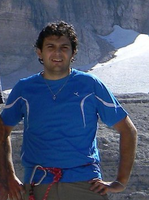 Luca is a PhD student at the University of Innsbruck (Austria). He is currently working for his PhD thesis in the Immunology group at the Research Institute for Aging Research, under the supervision of Prof. Grubeck-Loebenstein. The aim of his project is to characterize the bone marrow niches for memory T cells and plasma cells and to investigate how they are changing with aging and CMV infection. He graduated in 2013 in Industrial Biotechnology at the University of Milan-Bicocca, with the thesis “Deficits of synaptic plasticity in the hippocampus of Engrailed-2 knockout mice, an animal model of autism”.
Luca is a PhD student at the University of Innsbruck (Austria). He is currently working for his PhD thesis in the Immunology group at the Research Institute for Aging Research, under the supervision of Prof. Grubeck-Loebenstein. The aim of his project is to characterize the bone marrow niches for memory T cells and plasma cells and to investigate how they are changing with aging and CMV infection. He graduated in 2013 in Industrial Biotechnology at the University of Milan-Bicocca, with the thesis “Deficits of synaptic plasticity in the hippocampus of Engrailed-2 knockout mice, an animal model of autism”.
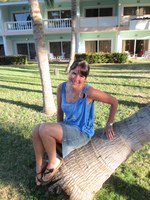 My name is Christina Metzger. In September 2006 I started my bachelor studies in Biology at the Leopold Franzens University Innsbruck and finished my studies with the Master in Microbiology in December 2011. For my PhD I joined the group of Molecular and Cell Biology at the Institute for Biomedical Aging Research in August 2012. In the first year of my graduate studies I was involved in the development of an ELISA for the detection of high risk HPV – E7 proteins in collaboration with partners from the industry. Currently my main research is focused on investigating the functional role of the human mitochondrial protein FAHD1 in a mouse model, in particular its function in brown fat tissue. Additionally I´m Representative of the PhD program "The Aging of Biological Communication Systems" of the Medical University Innsbruck.
My name is Christina Metzger. In September 2006 I started my bachelor studies in Biology at the Leopold Franzens University Innsbruck and finished my studies with the Master in Microbiology in December 2011. For my PhD I joined the group of Molecular and Cell Biology at the Institute for Biomedical Aging Research in August 2012. In the first year of my graduate studies I was involved in the development of an ELISA for the detection of high risk HPV – E7 proteins in collaboration with partners from the industry. Currently my main research is focused on investigating the functional role of the human mitochondrial protein FAHD1 in a mouse model, in particular its function in brown fat tissue. Additionally I´m Representative of the PhD program "The Aging of Biological Communication Systems" of the Medical University Innsbruck.
 Magdalena M. Schimke accomplished her Bachelor's degree in the field of Cell Biology and Physiology at the University of Salzburg, Austria in 2007. In 2006, she spent a summer at the Institute of Tropical Research of Austria, led by the University of Vienna, in Costa Rice conducting an eco-/zoologic research project.
Magdalena M. Schimke accomplished her Bachelor's degree in the field of Cell Biology and Physiology at the University of Salzburg, Austria in 2007. In 2006, she spent a summer at the Institute of Tropical Research of Austria, led by the University of Vienna, in Costa Rice conducting an eco-/zoologic research project.
The master's degree was optained in Biomedicine and Biotechnology, an innovative degree program embedded in the University of Veterinary Medicine, Vienna, Austria. The master thesis was performed at the Departement of Cardiology, School of Medicine at the University of California, San Diego (UCSD) working on rat cardiac fibroblasts and their reactions to diabetes-induced high blood sugar levels. Since 2010, she works at the Institute for Biomedical Aging Research, University of Innsbruck, Austria. As a PhD student (Program: The Aging of Biological Communication Systems, Medical University of Innsbruck) in the group of Doz. Günter Lepperdinger (Extracellular Matrix Research Group, ECMR), she deals with bone tissue repair applying a mesenchymal stem cells together with nano-scaled diamond particles aiming on the reconstruction of the bone marrow niche ex vivo. The project is conducted within the collaborative intrernational research platform DiaLife, a Laura Bassi Centre of Expertise, which focuses on a translatation between industry and medicine while promiting young female researchers.
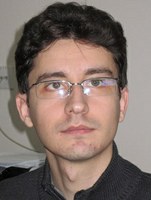 Resident Doctor in Pathology at Emergency County Hospital, Craiova.
Resident Doctor in Pathology at Emergency County Hospital, Craiova.
 Bethan E Phillips, PhD Research Fellow in Clinical, Metabolic and Molecular Physiology, Division of Medical Sciences and Graduate Entry Medicine, School of Medicine, University of Nottingham, United Kingdom.Email: beth.phillips@nottingham.ac.uk
Bethan E Phillips, PhD Research Fellow in Clinical, Metabolic and Molecular Physiology, Division of Medical Sciences and Graduate Entry Medicine, School of Medicine, University of Nottingham, United Kingdom.Email: beth.phillips@nottingham.ac.uk
Between 1985 and 2010 the percentage of people in the UK aged 65+ rose from 15-17%, an increase of 1.7 million people. By the year 2035 it is expected that those age over 65 y will account for 23% of the UK population. Ageing is associated with an undesirable loss of muscle mass known as sarcopenia. The health problems associated with sarcopenia are multiple and highly prevalent, including increased risk of falls, functional disability, metabolic disorders (i.e., T2D), and loss of independence. With so many associated complications sarcopenia poses a great socio-economic burden to all of society. The focus of my research centered on interrogating the regulation of skeletal muscle macro- and microvascular blood flow in ‘normal’ healthy ageing and age-related diseases, with the aim to identify novel therapeutic strategies - be they exercise, nutrition or pharmacological based (or indeed adjuvant therapies) - to improve muscle metabolism and vascular function with age. My research is interdisciplinary and translational, combining whole-body physiology, molecular and imaging approaches to gain understanding on how age effects muscle metabolism and vascular function. I have been involved in recent pioneering work surrounding development of novel ways by which to quantify microvascular blood flow in ageing human skeletal muscle using innovative contrast enhanced ultrasound techniques. I have also taken this technique into a clinical arena exploring vital organ perfusion and fluid replacement during surgery. My work has not only involved method development but also characterizing the relationships between skeletal muscle microvascular blood flow and muscle protein metabolism and insulin sensitivity; the purpose of which being to determine the role of muscle blood flow in age-related metabolic decline. In my future work I hope to explore the brain-muscle vascular axis in ageing, to better understand the relationships between brain blood flow and the control of exercise performance and tolerance; with a rationale that brain blood flow influences the efficacy of exercise interventions in aged individuals. In addition I would like to continue exploring the importance of genetic ‘responder’ profiles to help determine optimal personalized exercise strategies for healthy, active ageing.
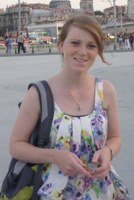 My name is Stéphanie Looijaard and I am twenty years old. I am a second year student Medicine at the Vrije Universiteit of Amsterdam in the Netherlands. I applied for the ‘Next Generation Leaders in Biology of Ageing’ program since I have a special interest in ageing and geriatrics. Especially because the regular curriculum of my university does not offer much attention to the biology of ageing, this is the perfect opportunity for me to learn about ageing in depth. I am really looking forward to the program and I hope to get a better understanding of the biology of ageing. Furthermore, I would like to find out which different processes play a role in ageing and the health of older persons, find out how these processes interact with one another and how we can translate this information into clinical practice.
My name is Stéphanie Looijaard and I am twenty years old. I am a second year student Medicine at the Vrije Universiteit of Amsterdam in the Netherlands. I applied for the ‘Next Generation Leaders in Biology of Ageing’ program since I have a special interest in ageing and geriatrics. Especially because the regular curriculum of my university does not offer much attention to the biology of ageing, this is the perfect opportunity for me to learn about ageing in depth. I am really looking forward to the program and I hope to get a better understanding of the biology of ageing. Furthermore, I would like to find out which different processes play a role in ageing and the health of older persons, find out how these processes interact with one another and how we can translate this information into clinical practice.
 My name is Esmee Reijnierse (1991) and I graduated in 2012 in Nutrition and Dietetics at the Amsterdam University of Applied Sciences (the Netherlands). After graduation I started with my premaster and master in Health Sciences with the specialization Nutrition and Health at the VU University in Amsterdam. At the moment I am doing my master’s internship at the department of Gerontology and Geriatrics at the VU University Medical Center in Amsterdam. My master thesis subject is about diagnostic criteria for sarcopenia and malnutrition in elderly outpatients. During this internship, I am also gaining experience by working with the elderly. I believe the elderly population is an interesting and challenging group because of the complexity of the aging process. The main reason why I signed in for this program is to expand my knowledge of aging. My ambition is to start a research career in which my preference lies in aging. By participating in the Next Generation Leaders in Biology of Aging program, I want to deepen my knowledge in the science of aging and I eager to learn more about the aging mechanisms. My goal is to obtain an understanding of the aging processes which I can use in my future career.
My name is Esmee Reijnierse (1991) and I graduated in 2012 in Nutrition and Dietetics at the Amsterdam University of Applied Sciences (the Netherlands). After graduation I started with my premaster and master in Health Sciences with the specialization Nutrition and Health at the VU University in Amsterdam. At the moment I am doing my master’s internship at the department of Gerontology and Geriatrics at the VU University Medical Center in Amsterdam. My master thesis subject is about diagnostic criteria for sarcopenia and malnutrition in elderly outpatients. During this internship, I am also gaining experience by working with the elderly. I believe the elderly population is an interesting and challenging group because of the complexity of the aging process. The main reason why I signed in for this program is to expand my knowledge of aging. My ambition is to start a research career in which my preference lies in aging. By participating in the Next Generation Leaders in Biology of Aging program, I want to deepen my knowledge in the science of aging and I eager to learn more about the aging mechanisms. My goal is to obtain an understanding of the aging processes which I can use in my future career.
 My name is Morena Leter. Born in Suriname, I came to the Netherlands in 2010 at the age of eighteen to explore my educational options. Since I have always been interested in human health, I decided to study Health and Life sciences at the VU University in Amsterdam. The program was very broad, with topics ranging from brain disorders to health effects of moving. From the second year on I specialized in Health sciences instead of Biomedical sciences, because I believed my social competences would fit that profile the most. Nevertheless I did miss biomedical components and pathways, which are usually the source of diseases. After successfully finishing my Bachelor of Science in 2013, I decided to continue with the Master Health Sciences, which only has a duration of one year. My specialization was Nutrition and Health, but I did not gain as much knowledge as I expected at first. Therefore I am glad that my current internship at the Section Gerontology and Geriatrics, department of Internal Medicine at the VU University Medical Center has given me the opportunity to explore especially the practical side of Geriatrics. From what I have seen it is not that easy. There is no such thing as standard care. I do think that it is time for action, instead of just gathering scientific evidence. And if one decides to gather scientific evidence, this has to be done in a structured way. The Next Generation Leaders in Biology of Aging program will be a challenge, but I am ready to socialize and keep up with current science. I am ready to explore the field and prepare for the future.
My name is Morena Leter. Born in Suriname, I came to the Netherlands in 2010 at the age of eighteen to explore my educational options. Since I have always been interested in human health, I decided to study Health and Life sciences at the VU University in Amsterdam. The program was very broad, with topics ranging from brain disorders to health effects of moving. From the second year on I specialized in Health sciences instead of Biomedical sciences, because I believed my social competences would fit that profile the most. Nevertheless I did miss biomedical components and pathways, which are usually the source of diseases. After successfully finishing my Bachelor of Science in 2013, I decided to continue with the Master Health Sciences, which only has a duration of one year. My specialization was Nutrition and Health, but I did not gain as much knowledge as I expected at first. Therefore I am glad that my current internship at the Section Gerontology and Geriatrics, department of Internal Medicine at the VU University Medical Center has given me the opportunity to explore especially the practical side of Geriatrics. From what I have seen it is not that easy. There is no such thing as standard care. I do think that it is time for action, instead of just gathering scientific evidence. And if one decides to gather scientific evidence, this has to be done in a structured way. The Next Generation Leaders in Biology of Aging program will be a challenge, but I am ready to socialize and keep up with current science. I am ready to explore the field and prepare for the future.
 Daniel Wilkinson PhD Research Fellow in Clinical, Metabolic and Molecular Physiology, Division of Medical Sciences and Graduate Entry Medicine, School of Medicine, University of Nottingham, United Kingdom.Email: D.Wilkinson@nottingham.ac.uk
Daniel Wilkinson PhD Research Fellow in Clinical, Metabolic and Molecular Physiology, Division of Medical Sciences and Graduate Entry Medicine, School of Medicine, University of Nottingham, United Kingdom.Email: D.Wilkinson@nottingham.ac.uk
Declines in skeletal muscle mass beyond age 50, termed sarcopenia, occur at a rate of 0.5-1% per year. The prevalence of sarcopenia between 50 and 70 years of age is estimated to be 13–24% and increases to >50% in those 80 and older. Sarcopenia causes increased frailty which results in older adults moving around less due to weakness and/ or fear of falling. This encourages sedentarism only serving to further accelerate sarcopenia. Moreover, health problems associated with sarcopenia extend beyond those of muscle atrophy-related frailty to increased risk of cardiovascular and metabolic disease (e.g. type II Diabetes). Therefore, it is vital that strategies are developed to identify, characterise and combat sarcopenia in order to improve quality-of-life and reduce the healthcare burden on society. Since completing my PhD studies in 2012, I have been working within the MRC-ARUK centre of excellence for musculoskeletal ageing research as a post-doctoral research fellow. This work has focused on the development of novel and minimally invasive strategies for monitoring human skeletal muscle metabolism, using stable isotope tracers combined with mass spectrometry, in both health and ageing. In particular, I have been key in the development of an innovative technique for monitoring protein turnover in free living humans through the use of orally administered deuterium oxide or ‘heavy water’, which can measure protein turnover over both acute (<2 days) and chronic (several weeks) periods. This method has since been instrumental in securing a number of substantial grants aimed at uncovering some of the mechanisms involved in regulating age-related muscle loss, and the key role of protein turnover in this loss. I am currently tasked with the further development of stable isotope tracer techniques to study muscle mass regulation in chronic diseases and ageing, with the specific aim to develop novel non-invasive tracer based tools for monitoring muscle mass, protein synthesis and breakdown, which could in turn be utilized as a potential diagnostics to study aspects of ageing muscle, and the development of sarcopenia.
 My name is Kitty Roseboom, currently a student at the VU University Amsterdam. During my first few years of studying medicine, I realised that I was interested in the elderly and the ageing process, eventually resulting in a senior internship in geriatrics in my last year. During this time I came to realise that the combination of continued medical improvements and significant resource scarcity increases the necessity for difficult decisions to be made in clinical practice, especially in the field of geriatrics. Therefore I enrolled in a master of Health Sciences, specialising in Policy and Organisation of Health Care, where I’m currently working on a study about cost-effectiveness results. In the future, I would like to focus on the combination of ageing and efficiency, i.e. maximizing the clinical effects while limiting side effects and complications as well as costs. Likewise, I hope to improve the clinical guidelines for elderly. A good understanding of the 'natural' ageing process is therefore essential. During this programme I would like to improve my knowledge of the biology of ageing and I hope to meet other people who are interested in this topic.
My name is Kitty Roseboom, currently a student at the VU University Amsterdam. During my first few years of studying medicine, I realised that I was interested in the elderly and the ageing process, eventually resulting in a senior internship in geriatrics in my last year. During this time I came to realise that the combination of continued medical improvements and significant resource scarcity increases the necessity for difficult decisions to be made in clinical practice, especially in the field of geriatrics. Therefore I enrolled in a master of Health Sciences, specialising in Policy and Organisation of Health Care, where I’m currently working on a study about cost-effectiveness results. In the future, I would like to focus on the combination of ageing and efficiency, i.e. maximizing the clinical effects while limiting side effects and complications as well as costs. Likewise, I hope to improve the clinical guidelines for elderly. A good understanding of the 'natural' ageing process is therefore essential. During this programme I would like to improve my knowledge of the biology of ageing and I hope to meet other people who are interested in this topic.
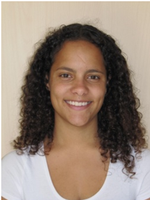
Anna Rojer, Student, Vrije Universiteit Amsterdam, a.g.m.rojer@student.vu.nl
 Martine Bocchini, master degree in Biology at Bologna University. Email: b.martine.b@gmail.com
Martine Bocchini, master degree in Biology at Bologna University. Email: b.martine.b@gmail.com
She graduated in Biology at Bologna University with a master degree thesis in subcellular pathology and biology entitled “ Miofibrillar Myopathies: immunophenotipical aspects and discrete diagnosis”. She attended the anatomical pathology department for a year learning how to process biopsy from muscular tissues. The main aim of the research was to find a solid biomarker that can discriminate between Miofibrillar Myophaties and Inclusion Body Myosytis, focusing on the role of MHC-I. She attended the microbiology lab at Cesena AUSL for a period of 6 month as a trainee. Currently, she is attending the Dr. Lorenzini’ s Lab at Department for Life Quality Studies as a trainee.
 My name is Patrick Fissler. I studied psychology with a specialization in neuropsychology, clinical psychology and cognitive neuroscience at the University of Konstanz, Germany, and the University of Padova, Italy. I gained clinical experience with older adults with brain injury at the neuropsychological section of the Geriatric Centre of Berlin (EGZB) within a six-month internship. Since my diploma thesis I focused my research interest on the prevention of cognitive decline and dementia by behavioral interventions such as cognitive and physical exercise. Next to the activity-induced effects on cognition and incidence of dementia, I am interested in the biological mechanisms these effects are mediated. Currently, I am working as a PhD student at the department of Clinical & Biological Psychology at the University of Ulm.
My name is Patrick Fissler. I studied psychology with a specialization in neuropsychology, clinical psychology and cognitive neuroscience at the University of Konstanz, Germany, and the University of Padova, Italy. I gained clinical experience with older adults with brain injury at the neuropsychological section of the Geriatric Centre of Berlin (EGZB) within a six-month internship. Since my diploma thesis I focused my research interest on the prevention of cognitive decline and dementia by behavioral interventions such as cognitive and physical exercise. Next to the activity-induced effects on cognition and incidence of dementia, I am interested in the biological mechanisms these effects are mediated. Currently, I am working as a PhD student at the department of Clinical & Biological Psychology at the University of Ulm.
 Inés Sánchez-Román. Postdoc in Department of Molecular Biology and Genetics. Aarhus Universitet. Email: rojas@mb.au.dk
Inés Sánchez-Román. Postdoc in Department of Molecular Biology and Genetics. Aarhus Universitet. Email: rojas@mb.au.dk
My name is Ines Sanchez. I am a postdoctoral researcher at Aarhus Universitet in the Department of Molecular Biology in Tinna Stevnsner´s lab, “DNA Repair and Ageing”. I got my PhD last year in the research group “Mitochondrial Free Radicals and Ageing”, lead by Dr. Barja at the Universidad Complutense of Madrid and I participated in several projects focused on the mitochondrial role in determination of aging rate. I also stayed for three months at Dr. Selman’s research group, at the University of Aberdeen, investigating the role of mitochondrial candidate longevity determinant pathways on nutritional interventions. Currently, my research project as a postdoc at Aarhus University aims to clarify if mitochondrial aspects, such as mitochondrial respiratory function and mtDNA copy number, among others, are associated with cognitive function in human PBMC´s from old individuals. I am also interested in the role of mitochondrial function in patients suffering from premature aging diseases, like Cockayne syndrome.
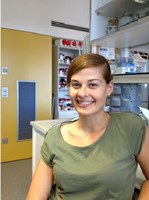
 Amelia Pollard, PhD student, School of Veterinary Medicine and Science, The University of Nottingham. Email: stxakpol@nottingham.ac.uk
Amelia Pollard, PhD student, School of Veterinary Medicine and Science, The University of Nottingham. Email: stxakpol@nottingham.ac.uk
My name is Amelia Pollard and I am a second year PhD student studying at The University of Nottingham in the United Kingdom. I undertook a bachelor degree in Animal Science at The University of Nottingham in 2009. I learnt a variety of topics such as biochemistry, animal nutrition, animal physiology, and neurophysiology. During my undergraduate degree I carried out a BBSRC summer studentship which I thoroughly enjoyed. After graduating from my bachelor’s degree I began my PhD entitled 'The Role of Mitochondria in Ageing and Neurodegeneration'. I am looking forward to meeting researchers from different countries who share similar interests.
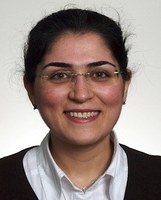 My name is Neda Nasiri Moghadam. In 2011, I was granted a full three years PhD scholarship at Aarhus University, Department of Bioscience. During my PhD study I developed an interest to assess the importance of lipids as cell membrane building blocks and major metabolic substrates on determining species-specific lifespan. To test the hypothesis of an association between lipids and lifespan I took advantage of a lipid mass spectrometry technique known as Gas chromatography–mass spectrometry (GC-MS).
My name is Neda Nasiri Moghadam. In 2011, I was granted a full three years PhD scholarship at Aarhus University, Department of Bioscience. During my PhD study I developed an interest to assess the importance of lipids as cell membrane building blocks and major metabolic substrates on determining species-specific lifespan. To test the hypothesis of an association between lipids and lifespan I took advantage of a lipid mass spectrometry technique known as Gas chromatography–mass spectrometry (GC-MS).
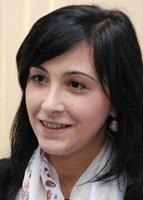 Marina Andrei, Pharmacist, PhD, Assistant Professor in the Biochemistry Department, UMF Craiova.
Marina Andrei, Pharmacist, PhD, Assistant Professor in the Biochemistry Department, UMF Craiova.
